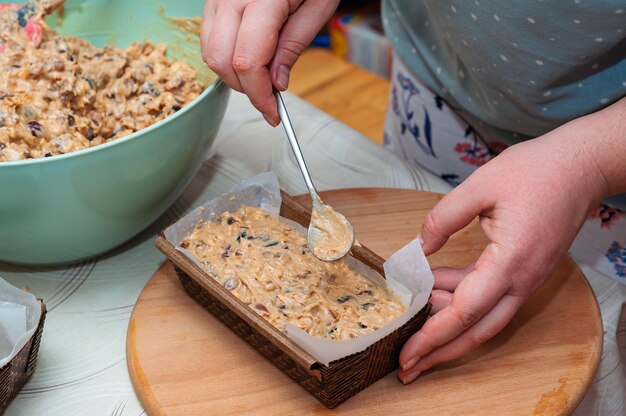How Long Is Cookie Dough Good for in the Fridge? All About Storage and Shelf Life
There's something irresistibly comforting about cookie dough. Whether you're sneaking a taste before baking or storing some for a rainy day, the question of how long you can keep cookie dough in the refrigerator is key to making the most of your culinary creations. There's more to it than just the duration—different doughs have different needs! So, let's dig into the factors affecting cookie dough's shelf life and practical tips for storage, ensuring your treats are safe, delicious, and ready when you are.
Cookie Dough Longevity: Understanding Storage Times
Basic Storage Guidelines
Generally, cookie dough can be stored in the refrigerator for about 3 to 5 days. Refrigeration helps slow down the growth of bacteria and preserves the components in the dough. That said, a few factors can affect this time frame:
- Type of Dough: Doughs with more butter and eggs may have a shorter fridge life since these ingredients are perishable.
- Ingredients Used: Preservative-rich dough lasts longer than those made with fresh, natural ingredients.
- Storage Conditions: Properly sealed containers will be more effective in retaining freshness compared to unsealed or loosely covered dough.
Types of Cookie Dough and Their Typical Shelf Life
- Classic Chocolate Chip: About 3 to 5 days
- Sugar Cookie: Roughly 4 to 5 days
- Peanut Butter: Around 4 to 5 days
- Gingerbread or Molasses: Typically lasts longer, up to a week due to spices
By paying attention to these different factors, you're not just ensuring your dough lasts as long as possible; you're setting yourself up for the best end product, too.
How to Properly Store Cookie Dough in the Fridge
Best Practices for Storage
- Seal It Right: Always use airtight containers or wrap the dough tightly with plastic wrap. This protects it from air exposure and prevents it from absorbing other refrigerator odors.
- Chill Immediately: Don't leave the dough out longer than necessary before chilling, as this can accelerate bacteria growth and spoil ingredients.
- Label: Clearly label your container with the date you made or bought the dough to keep track of how long it has been stored.
Signs Your Cookie Dough Has Gone Bad
Even with the best efforts, sometimes dough can spoil. Be on the lookout for:
- Foul Odor: An off or sour smell is a key indicator of spoilage.
- Color Changes: Discoloration may suggest spoilage or ingredient separation.
- Mold: Any signs of mold mean the dough should be discarded immediately.
Pro Tips for Getting Maximum Freshness
- Pre-Scooping: Before refrigerating the dough, consider scooping it onto a baking sheet. Pre-scooping not only helps save space but also allows uniformity when baking later on.
- Dough Logs: Rolling the dough into logs before wrapping them can make portioning simple when ready to bake.
Can You Freeze Cookie Dough?
For longer storage, freezing is an excellent option that can extend the dough's life by up to three months. Here’s how you can effectively freeze cookie dough:
How to Freeze Different Types of Dough
- Drop Cookies: Portion out the dough into balls, place on a baking sheet to freeze first, and then transfer to a zip-lock bag or container.
- Slice-and-Bake: Roll dough into a log shape, wrap tightly with plastic wrap, and freeze.
- Cut-Out Cookies: Roll out the dough and stack the shapes separated by parchment paper before sealing and freezing.
Tips for Thawing and Baking Frozen Dough
- Thaw dough in the refrigerator overnight before baking to maintain texture and flavor.
- You can also bake straight from frozen; just add a few extra minutes to your baking time.
Special Considerations: Raw Ingredients & Food Safety
Raw Eggs and Flour
One major concern with cookie dough is the presence of raw eggs and uncooked flour, both of which can harbor bacteria like Salmonella and E. coli. To minimize risk:
- Use pasteurized eggs or liquid egg alternatives.
- Consider heat-treating flour by spreading evenly on a baking sheet and baking it briefly to kill bacteria.
Alternatives for Safe Eating
For those who can't resist a taste, consider making egg-free dough versions or purchasing commercial dough labeled as safe to eat raw.
Recap: How to Keep Your Cookie Dough Fresh and Safe
Here’s a quick visual summary to help you out! 📝
| Tips for Freshness | Description |
|---|---|
| 🥶 Refrigeration | Store dough in an airtight container in the fridge for up to 5 days. |
| 👩🍳 Freezing Option | For longer storage, freeze dough for up to 3 months, thaw in fridge before baking. |
| 🚫 Spoilage Signs | Look for sour smell, color changes, or mold. Discard if any are present. |
| 🥚 Safety First | Use pasteurized eggs and consider heat-treating flour for safe eating. |
Taking these practical steps not only enhances the longevity of your cookie dough but also ensures every batch you bake is delectable.
A Final Note on Enjoyment
Cookie dough, in its raw and baked form, is undeniably beloved. Understanding how to store it properly empowers you to indulge safely and eagerly anticipate fresh, delicious cookies. With these guidelines, you can savor every bite with more confidence and less waste. Happy baking! 🍪

